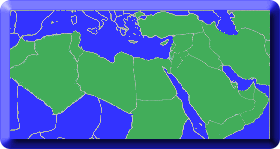
Topics in Middle Eastern and North African Economies
Document Type
Article
Publication Date
9-1-2021
Journal Title
Topics in Middle Eastern and North African Economies
Volume
23
Issue
2
Publisher
Middle East Economic Association and Loyola University Chicago
Abstract
This study investigates the role of political consensus in accelerating economic reforms. We examine the role of unregular political mechanisms represented by the political consensus in correcting regular political institutions. In particular, we analyze the success or failure of accelerating a reform vote in the parliament to identify the causal effect of the consensus. Using a novel and original database of reforms between 2012 and 2019 in Tunisia, we compare economic and social reforms to political reforms before and after the consensus. We find a significant negative effect of consensus on the probability to accelerate reform votes. Additionally, consensus is likely to delay economic and social reforms more than political reforms. This effect is driven first by a decrease in the number of reforms channeled to the parliament through informal mechanisms created by the consensus. Second, it is driven by the mistrust caused by a wrangling political instability and anticorruption war that prevailed after the consensus, which delayed the adoption of reforms by different stakeholders. We conclude that consensus has a subversive effect on democratic institutions in Tunisia by creating informal processes that reduced public oversight, transparency, and enforcement law.
ISSN
2334-282X
Recommended Citation
Jouini, Nizar and Akal, Manel ben, "Political Consensus, Economic Reforms, and Democratic Transitions: Evidence from voting Tunisian reform bills". Topics in Middle Eastern and North African Economies, electronic journal, 23, 2, Middle East Economic Association and Loyola University Chicago, 2021, http://www.luc.edu/orgs/meea/
Creative Commons License

This work is licensed under a Creative Commons Attribution-Noncommercial-No Derivative Works 3.0 License.
Copyright Statement
© The Author(s), 2021



Comments
Presentation of the articles in the Topics in Middle Eastern and North African Economies was made possible by a limited license granted to Loyola University Chicago and Middle East Economics Association from the authors who have retained all copyrights in the articles.